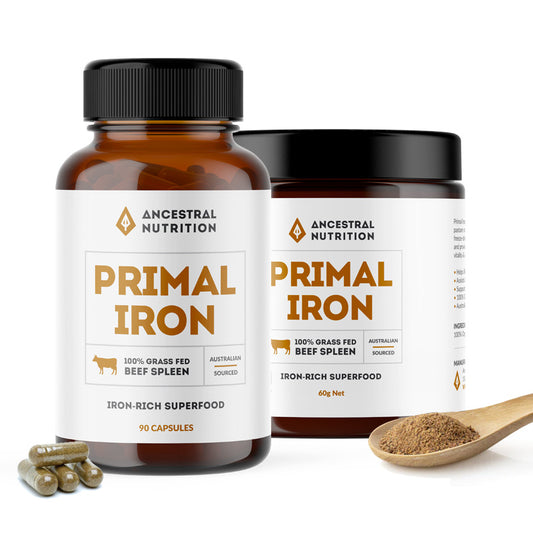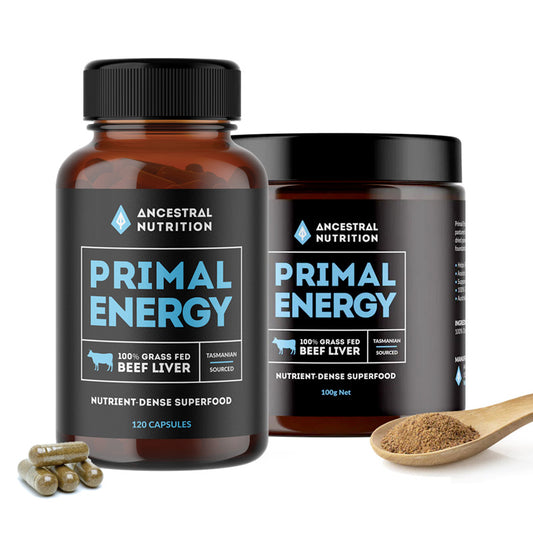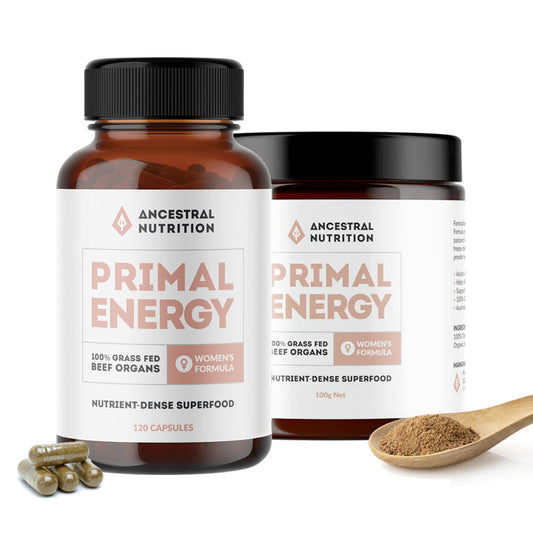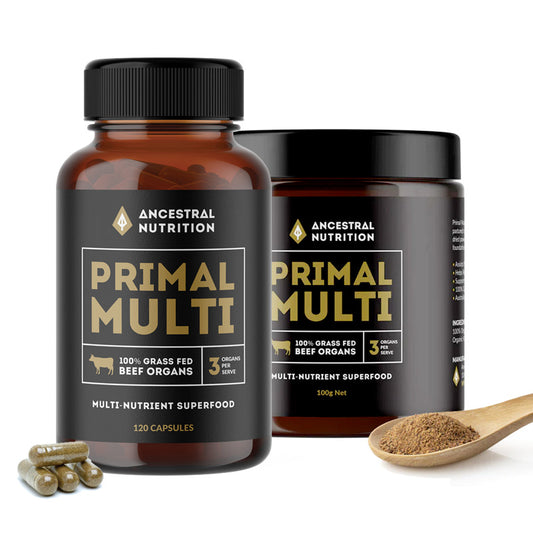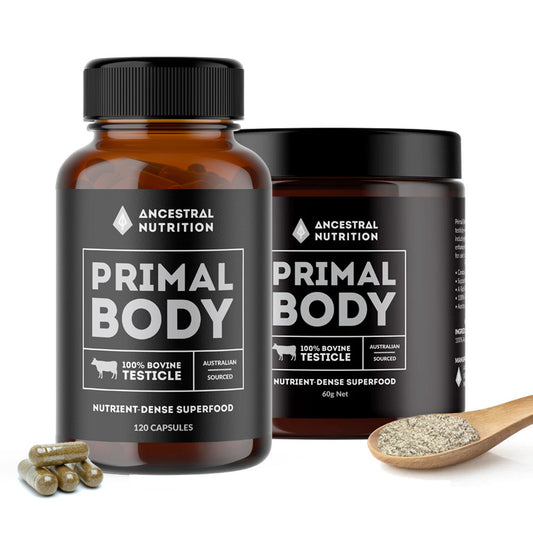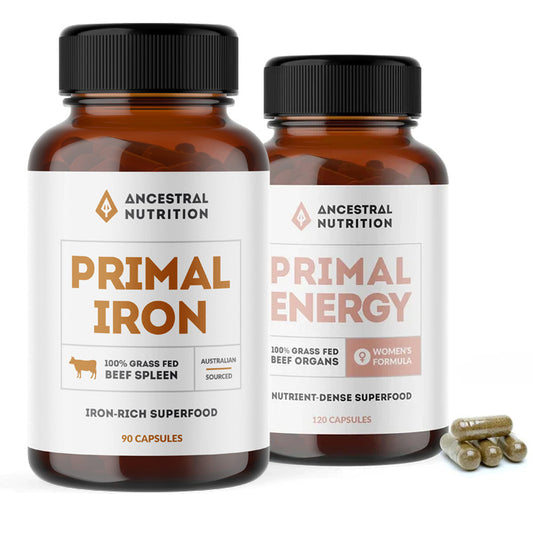Is Low Iron Slowing Down Your Thyroid and Metabolism?
article by Emily Collyer
Iron, Thyroid and Metabolism: The Overlooked Trio Every Person Should Understand
It's not everyday we have conversations about iron levels. In the health and wellness space, its more common to talk about weight loss journeys, ageing, metabolism, a new superfood or supplement. But beneath these conversations, are we familiar with the root cause of these topics? When it comes to metabolism, energy, vitality, iron plays a very powerful (often ignored) role.
Many women come to me feeling tired or struggling with weight and while these symptoms are linked to thyroid function another crucial nutrient that gets overlooked: iron.
Iron vital not only for general energy but also for the production and function of thyroid hormones, which regulate metabolism. Understanding how iron and thyroid health interconnect can provide important insight into why you might be feeling less than your best, even if your thyroid tests seem "normal"
What is Iron Deficiency and Why Is It So Common?
Iron deficiency is the most common nutrient deficiency worldwide, affecting an estimated 2 billion people. It disproportionately impacts women, especially those who are pregnant, breastfeeding or those of reproductive age.
Iron is essential for haemoglobin, the protein in red blood cells that carries oxygen to every cell in your body. Without enough iron, your cells cant produce energy efficiently, slowing down your metabolism and causing symptoms like fatigue, brain fog or poor circulation.
How Your Thyroid Controls Metabolism
The thyroid gland, a butterfly-shaped organ in your neck, regulates how quickly your body burns energy by producing two hormones: T4 (thyroxine) and T3 (triiodothyronine). T3 is the active hormone that influences heart rate, digestion, temperature regulation and metabolic rate.
Iron is critical for producing these hormones.
The Science Behind Iron and Thyroid Hormones
Thyroid hormone production relies on an enzyme called thyroperoxidase (TPO), which contains iron. Without sufficient iron, TPO activity decreases, leading to reduced production of thyroid hormones.
A systematic review confirmed people with iron deficiency has lower thyroid hormone levels, especially pregnant women who need more nutrients.
Iron deficiency is also liked with higher thyroid antibodies, suggesting a connection with autoimmune thyroid diseases like Hashimoto's. Conversely, low thyroid hormones can reduce stomach acid, impairing iron absorption. They can also lower ferritin production and red blood cell creation, increasing risk of iron deficiency. This creates a feedback loop where thyroid dysfunction worsens iron status and vice versa.
Low iron symptoms can cross over with signs of thyroid dysfunction:
- Fatigue
- Hair thinning
- Dry Skin
- Sensitivity to cold
- Brain fog
Because symptoms overlap, iron deficiency can sometimes worsen thyroid problems, or mimic them, making diagnosis harder. Therefore, it is recommended you ask your general practitioner to check full iron studies and thyroid panel.
Iron and Thyroid Influence on Metabolism
Metabolism isn't just about calories burned; it's your body's energy system (how every cell produces and uses energy). Iron deficiency slows oxygen delivery to cells, impairing energy production. Thyroid hormones regulate how fast your metabolic engine runs.
Signs of low energy production are:
- Lower body temperature
- Reduced heart rate
- Impaired cognitive function
How to Support your Iron and Thyroid Health
All areas of health can be supported by prioritising the 4 pillars of health:
- A balanced whole-food diet
- Good quality sleep
- Adequate daily movement
- Mindset/nervous system regulation
From a clinical nutrition perspective, its valuable to assess the following considerations when supporting iron status and thyroid function:
- Am I regularly including heme iron sources such as grass-fed beef organ meats (spleen and liver), muscle meats or poultry?
- Am I pairing iron containing meals with a source of vitamin C (oranges, kiwi, capsicum) to support iron absorption?
- Am I avoiding foods that may inhibit iron absorption such as calcium-rich foods, caffeine and tea around iron rich meals?
- Am I supporting optimal stomach acid production through strategies like apple cider vinegar before meals or ensuring meals are eaten in a calm, relaxed state?
- Am I consuming sufficient energy to meet my daily energy requirements?
- Am I incorporating food sources rich in selenium and iodine, such as beef liver (or beef liver capsules), iodised salt, seaweed, sardines, whole grains?
Final Thoughts
Iron and thyroid health are closely linked and central to your metabolism. If you feel tired or "off" despite lifestyle efforts, consider whether iron deficiency and thyroid function could be factors.
References
Eftekhari, M. H., Keshavarz, S. A., Jalali, M., Elguero, E., Eshraghian, M. R., & Simondon, K. B. (2006). The relationship between iron status and thyroid hormone concentration in iron-deficient adolescent Iranian girls. Asia Pacific Journal of Clinical Nutrition, 15(1), 50–55. https://pubmed.ncbi.nlm.nih.gov/16500878/
Garofalo, V., Condorelli, R. A., Cannarella, R., Aversa, A., Calogero, A. E., & La Vignera, S. (2023). Relationship between Iron Deficiency and Thyroid Function: A Systematic Review and Meta-Analysis. Nutrients, 15(22), 4790. https://doi.org/10.3390/nu15224790
Leedman, P. J., Stein, A. R., Chin, W. W., & Rogers, J. T. (1996). Thyroid Hormone Modulates the Interaction between Iron Regulatory Proteins and the Ferritin mRNA Iron-responsive Element. Journal of Biological Chemistry, 271(20), 12017–12023. https://doi.org/10.1074/jbc.271.20.12017


